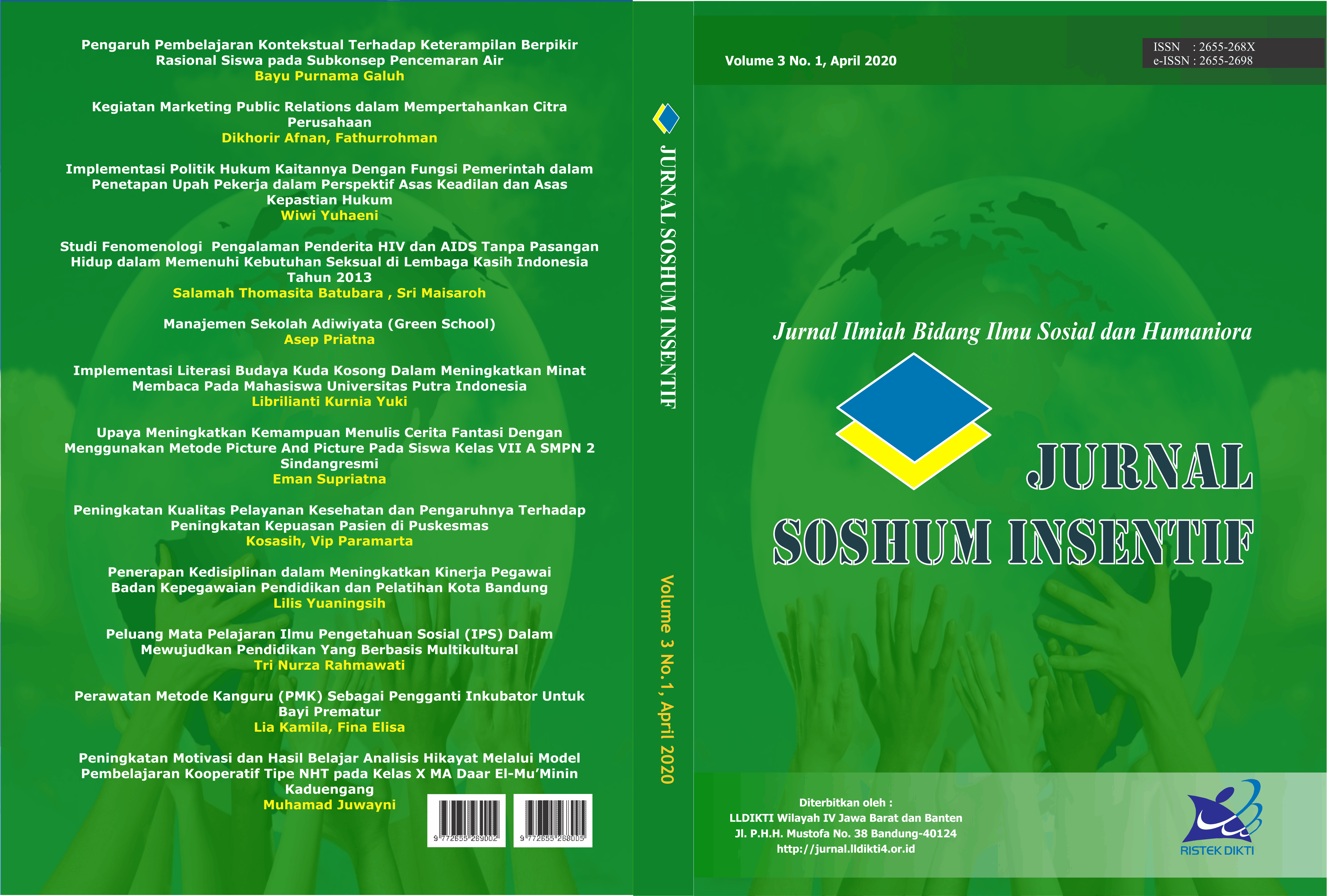Perawatan Metode Kanguru (PMK) Sebagai Pengganti Inkubator Untuk Bayi Prematur
Abstrak
Abstract. Premature babies are at risk of causing complications such as thermoregulation temperature, oxygen desaturation, and intestinal motility. The main treatment for premature babies is in the incubator, but due to the limited use of the incubator, we need a method that similar to the way an incubator works for mother. Kangaroo mother care is an alternative treatment for premature babies that can be done by their mother. This method is done by placing the baby on the mother’s chest so that there is direct contact between the mother’s skin with the baby’s skin.
The purpose of this research is to determine the physiological responses in Premature Babies such as heart rate frequency, temperature and baby reflex before and after the kangaroo mother care in the government hospital city of Bandung.
This research uses a quasi-experimental method with one group pretest posttest design with 16 premature babies as a sample during June-July 2019.
Result: before kangaroo mother care the average temperature of the baby is 36.4 0 C, the frequency of the heart rate 136 x / minute, babies who do not have a rooting reflex 50%, sucking reflex 68% and swallowing Reflex 100%. After kangaroo mother care has been given, the baby's temperature is 36.8 o C, the heart rate is 142 x / minute, babies already have 100% rooting reflex, 93.8% sucking reflex, and 75% swallowing reflex.
The conclusion is there are significant differences in physiologic responses before and after kangaroo mother care.
Abstrak. Bayi prematur beresiko mengalami komplikasi seperti termogulasi suhu, desaturasi oksigen dan motilitas usus. Perawatan utama untuk bayi prematur adalah di dalam inkubator, namun karena keterbatasan penggunaan inkubator, maka diperlukan satu metode yang menyerupai cara kerja inkubator yang dapat dilakukan oleh ibu. Perawatan Metode Kanguru (PMK) merupakan salah satu alternatif perawatan bagi bayi prematur yang dapat dilakukan oleh ibu. Metode ini dilakukan dengan cara meletakkan bayi di dada ibu sehingga terjadi kontak langsung antara kulit ibu dengan kulit bayi.
Penelitian ini bertujuan untuk mengetahui respons fisiologis pada bayi prematur yang terdiri dari frekuensi denyut jantung, suhu tubuh dan refleks bayi sebelum dan setelah dilakukan PMK.
Penelitian ini menggunakan jenis penelitian quasi experiment dengan bentuk rancangan One Group Pretest-Posttest. Sampel sebanyak 16 bayi prematur di RSUD Kota Bandung bulan Juni-Juli 2019.
Hasil penelitian menunjukkan sebelum dilakukan PMK rata-rata suhu bayi 36,4oC, frekuensi denyut jantung 136x/menit, sedangkan bayi yang belum memiliki refleks mencari 50% , refleks menghisap 68% dan refleks menelan 100%. Sesudah diberikan PMK rata-rata Suhu bayi 36,8oC, frekuensi denyut jantung 142x/menit, bayi yang sudah memiliki refleks mencari 100%, refleks menghisap 93,8% dan refleks menelan 75%.
Kesimpulan dari penelitian ini yaitu terdapat perbedaan perubahan respons fisiologis sebelum dan setelah dilakukan PMK.




















